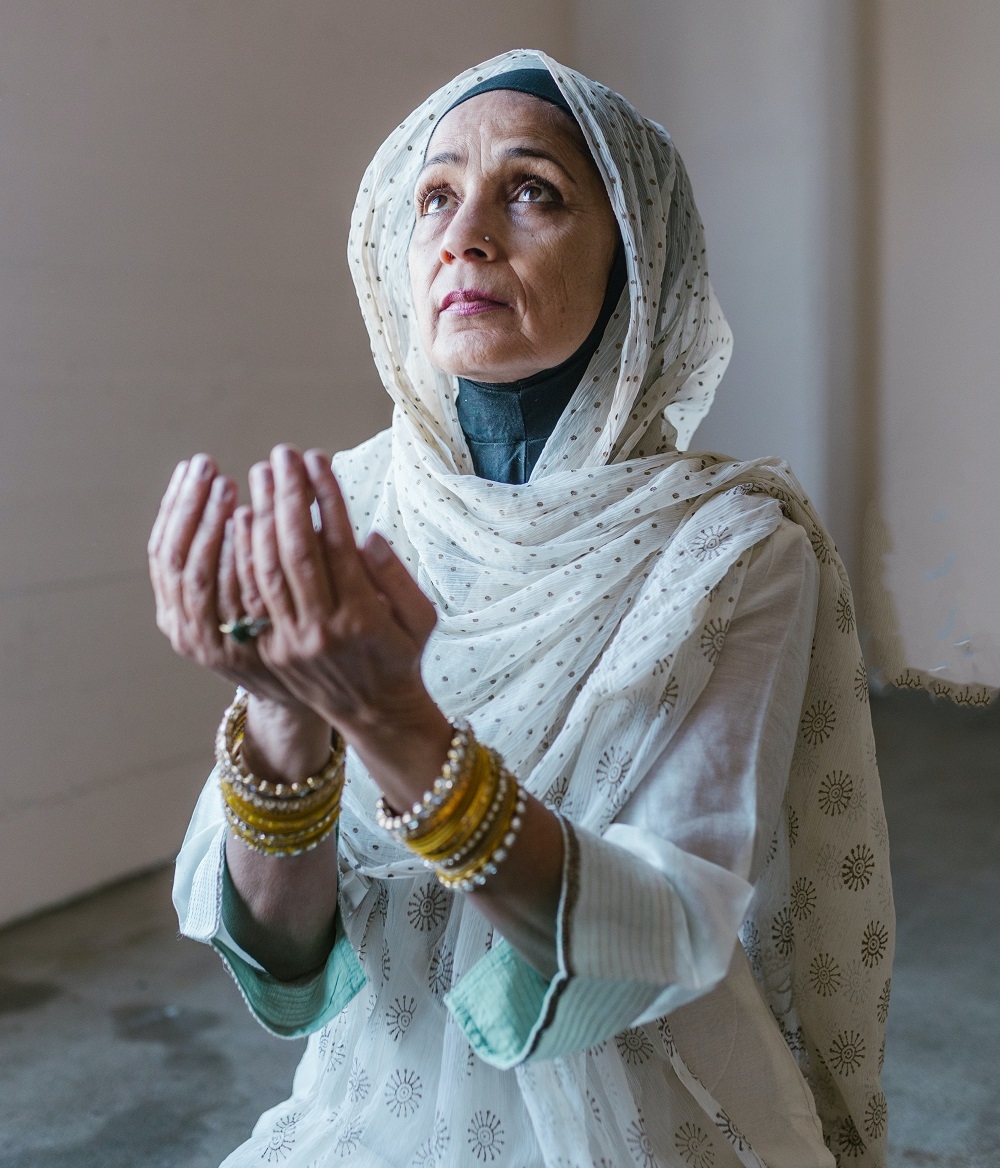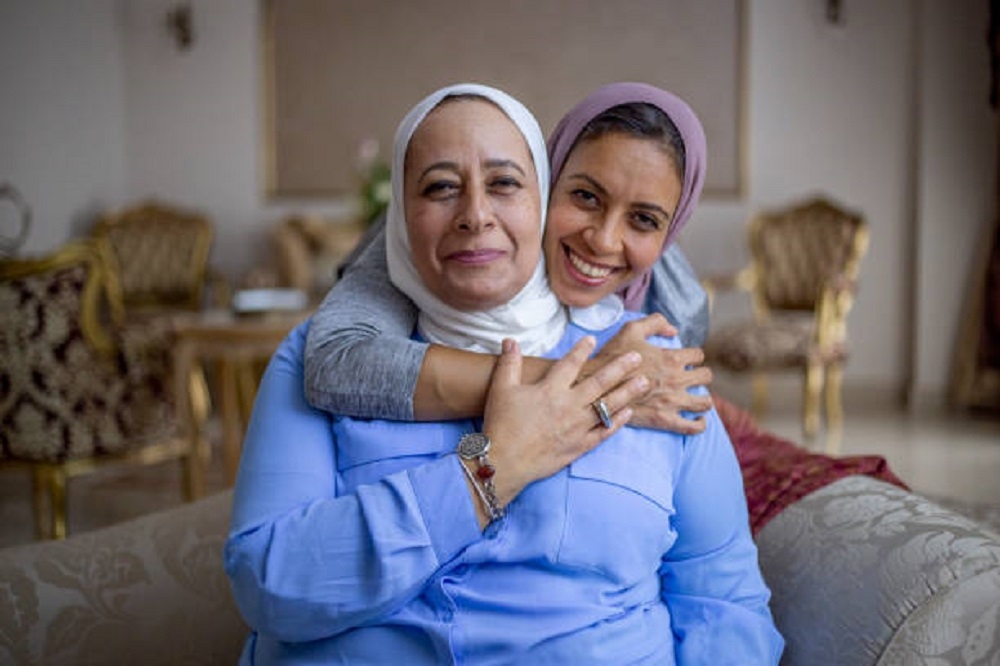9 Empowering Ways to Overcome the Challenges of a Gray Divorce
Lifestyle
|
Jul 26, 2023
|
6 MIN READ

Image source: Pexels; photo by Beyzaa Yurtkuran
Have you heard the term “gray divorce,” particularly in Muslim circles? No? Well, you’re not alone.
The term "gray divorce" has emerged as a significant trend in modern relationships. Gray divorce refers to the dissolution of marriages among couples aged 50 and older. While divorce rates in younger age groups have stabilized or declined in recent years, gray divorce has witnessed a notable surge. And while it’s still fairly unheard of and un-talked about phenomena in Muslim communities, it is happening here too.
So, let’s delve into the rising phenomenon of gray divorce among women in America, look at the statistics and share essential tips to cope with its unique challenges.
The Rising Trend of Gray Divorce Among Women
Over the past few decades, the dynamics of marriage and divorce have evolved considerably. As societal norms change, women have become increasingly independent and empowered, leading to a shift in the traditional roles and expectations within marriages. At the same time, both men and women are coming to terms with what they will or will not compromise on in marriage over the course of longer periods of time.
As a result, gray divorce has become more prevalent, with women taking the brave step to end marriages that no longer fulfill their emotional, intellectual, and financial needs.
Statistics reveal that the rate of gray divorce has doubled over the last 30 years, and women play a significant role in this trend. According to the National Center for Family & Marriage Research, approximately one out of every four divorces in America involves couples over 50. Moreover, a study conducted by the Pew Research Center found that the divorce rate for individuals aged 50 and older increased by 109 percent from 1990 to 2015.
This phenomenon has earned the label "silver splitters," reflecting the increasing number of individuals who embark on new lives after long-term marriages.
Islam and the Rights of Divorced Muslim Women

Image source: Pexels
Some Muslim cultures can and do judge divorced women, even though Islam does not encourage such attitudes. The Prophet Muhammad (saw) married divorced women, and the Quran, the holy book of Islam, acknowledges the status and rights of divorced women. Islam places great emphasis on justice, compassion, and equality, discouraging any form of discrimination or prejudice against divorced individuals, including women.
The Prophet Muhammad's multiple marriages to divorced women is a significant example of how Islam treats divorced individuals with respect and dignity. One notable example is his marriage to Zaynab bint Jaḥsh (ra), who was once married to the Prophet’s (saw) adopted son, Zayd ibn Ḥārithah (ra). Their marriage is referenced in the Quran because of the controversy of the Prophet (saw) wanting to marry his adopted son’s ex-wife. Yaqeen Institute has a great article about it.
The Prophet Muhammad's (peace be upon him) marriages to divorced women, including Zaynab bint Jahsh (may Allah (S) be pleased with her), are important examples of how Islam treats divorced individuals with respect and dignit. These marriages also illustrate the Quranic principles of justice and compassion regarding the treatment of divorced women.
Challenging Cultural Attitudes
Despite the clear teachings of Islam on treating divorced women with kindness and respect, cultural attitudes and practices can sometimes deviate from these principles. Divorced women may face social stigma, discrimination or judgment in some communities. These harmful attitudes often arise from cultural norms, patriarchal traditions or misunderstandings of religious teachings.
To address this issue, Muslim communities must engage in education and open dialogue about the rights and status of divorced individuals in Islam. This includes raising awareness about the Prophet Muhammad's (saw) relationships with divorced women and emphasizing the Quranic principles of justice, mercy, and compassion for all.
(Are you going through a divorce or getting divorced? Here are supports and ways to navigate a post-divorce landscape within our Muslim communities.)
Support and Empowerment

Image source: Landays Poetry Magazine for Afghan Women
Support networks and organizations can be vital in empowering divorced women within Muslim communities. By creating spaces that encourage understanding, empathy, and acceptance, these groups can help combat the stigma associated with divorce.
Additionally, religious leaders and scholars should actively dispel misconceptions and promote a compassionate approach to divorced individuals. They can use their platforms to educate their congregations about the Prophet's teachings on this matter and to foster a culture of inclusion and support.
(Are you going through a divorce? Here are some things our faith has advised us to consider and what the Quran and sunnah says about divorce. The sunnahs of Islam have laid out how we can separate with kindness.)
Challenges of Gray Divorce for Women
Gray divorce can present unique challenges for women, given the relationship's accumulated emotional and financial investments. Some of the everyday struggles faced by women undergoing gray divorce include:
1. Emotional turmoil: After decades of shared experiences and raising families together, a gray divorce can lead to profound emotional turmoil. Feelings of loss, loneliness and uncertainty about the future can be overwhelming.
2. Financial uncertainty: Gray divorce can significantly impact financial stability, especially if women have been out of the workforce or relied on their spouse's income. Dividing assets and retirement funds and dealing with alimony can be complex and anxiety-inducing.
3. Social isolation: Divorce, especially at an older age, may lead to changes in social circles and increased feelings of isolation. Mutual friends may feel compelled to take sides, causing further strain on relationships.
4. Empty nest syndrome: Gray divorce often coincides with the departure of children from the home, exacerbating feelings of emptiness and loss.
5. Health concerns: Divorce can trigger stress-related health issues such as anxiety and depression, which can be particularly challenging for women in their 50s and older.
Tips for Coping with Gray Divorce

Image source: Pexels
Although gray divorce can be daunting, with the right approach women can navigate this transition and find newfound strength and happiness. Here are some essential tips to help cope with the struggles of a gray divorce:
1. Seek support from Allah (S): Turn to Allah (S) through prayer (salah) and supplication (du’a) to seek comfort, guidance and strength during this difficult time. Remember that Allah (S) is always there to listen and respond to your heartfelt prayers.
2. Seek social support: Lean on family, friends or support groups within the Muslim community for emotional support. Surround yourself with positive and understanding individuals who can offer encouragement and empathy.
3. Seek professional support: Enlist the guidance of a therapist or counselor specializing in divorce and life transitions. Professional support can provide a safe space to express emotions and develop coping strategies.
4. Read and reflect on the Quran: The Quran is a source of solace and guidance. Spend time reading and reflecting on its verses, as it can provide comfort, wisdom and direction during challenging times.
5. Engage in acts of worship: Engaging in acts of worship, such as reciting the Quran, making dhikr (remembrance of Allah(S), and performing voluntary prayers (nafl), can bring tranquility to your heart and strengthen your connection with Allah (S).
6. Prioritize self-care: Taking care of oneself physically and emotionally is crucial. Engage in activities that bring joy and relaxation, such as exercise, hobbies or time with supportive friends.
7. Financial planning: Seek the advice of a financial advisor to gain clarity on your financial situation and plan for the future. Understanding your financial rights and options is essential to secure your financial independence.
8. Rediscover your identity: Embrace the opportunity to rediscover your passions and interests. Pursue education, career changes or hobbies you may have set aside during your marriage.
9. Seek a positive outlook: While it may be challenging to see now, view the divorce as an opportunity for personal growth and a chance to create a fulfilling new chapter in life.
Gray divorce is an increasingly prevalent phenomenon among women in America and is something that is starting to happen in our Muslim communities (something I’ve heard of anecdotally, and experienced myself, though I haven’t found definitive statistics documenting how much it is happening). As women navigate this challenging period of life, it is essential to acknowledge and address the emotional and financial struggles they may encounter.
By seeking support, prioritizing self-care and embracing change, women can emerge from gray divorce stronger, wiser, and ready to embark on a new and fulfilling journey. Remember, finding happiness and fulfillment in life is never too late, by the grace of Allah (S)
Subscribe to be the first to know about new product releases, styling ideas and more.
What products are you interested in?


